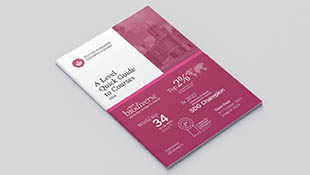-
Courses

Courses
Choosing a course is one of the most important decisions you'll ever make! View our courses and see what our students and lecturers have to say about the courses you are interested in at the links below.
-
University Life

University Life
Each year more than 4,000 choose University of Galway as their University of choice. Find out what life at University of Galway is all about here.
-
About University of Galway

About University of Galway
Since 1845, University of Galway has been sharing the highest quality teaching and research with Ireland and the world. Find out what makes our University so special – from our distinguished history to the latest news and campus developments.
-
Colleges & Schools

Colleges & Schools
University of Galway has earned international recognition as a research-led university with a commitment to top quality teaching across a range of key areas of expertise.
-
Research & Innovation

Research & Innovation
University of Galway’s vibrant research community take on some of the most pressing challenges of our times.
-
Business & Industry

Guiding Breakthrough Research at University of Galway
We explore and facilitate commercial opportunities for the research community at University of Galway, as well as facilitating industry partnership.
-
Alumni & Friends

Alumni & Friends
There are 128,000 University of Galway alumni worldwide. Stay connected to your alumni community! Join our social networks and update your details online.
-
Community Engagement

Community Engagement
At University of Galway, we believe that the best learning takes place when you apply what you learn in a real world context. That's why many of our courses include work placements or community projects.
Mental Health Nursing
Course Overview
This four-year programme, offered in partnership with the Galway Roscommon Mental Health Nursing Services and the Saolta University Health Care Group leads to the award of Bachelor of Nursing Science (Mental Health Nursing) and eligibility for registration in the Psychiatric Division of the Nurses’ Register, maintained by Nursing and Midwifery Board of Ireland (NMBI), the nursing profession’s regulatory body.
The BSc. (Hons) in Mental Health Nursing is focused on the recovery of people experiencing mental health issues. It promotes psychological and physical wellbeing of individuals throughout the lifespan from children, young people, adults and older people. At the University of Galway, we recognise the challenges and rewards of mental health nursing. Our programme is about developing your own personal skills to allow you to build effective relationships with patients and clients and it is designed to equip you with knowledge and skills needed to progress as a mental health nurse.
The programme integrates theory and practice across the four years. It focuses on positive therapeutic relationships/interventions, communication skills and inter-professional team working, which will enrich your student experiences to prepare for the reality of professional practice in an ever-changing health care environment. Throughout the programme, you’ll explore the complexities of mental health care and develop a deep understanding of the diverse needs of people in your care. As a mental health nursing student, you are prepared to undertake a person-centred assessment, formulating and delivering care in partnership with their clients and their significant others and building psychosocial support systems. During clinical placement, you will work alongside other mental health care professionals such as psychologists, occupational therapists, speech and language therapists, psychiatrists and social workers.
You will learn in our state-of-the-art clinical skills and simulation suite and complete practice placements in a range of mental health care settings. The programme is taught by experts in mental health nursing, who will support you in becoming a caring, compassionate professional, working in partnership with people, families, and communities. We nurture your creativity, critical judgement and ability to lead as you develop your clinical skills. You will be prepared for challenges you might face as a practicing mental health nurse.
Student Support within the School and the University
The School of Nursing & Midwifery is committed to supporting students in relation to both their academic and personal development; the structures that are in place to support students within the school and university are presented below.
Academic Advisor
Each student is allocated an academic advisor for the duration of the programme. This advisor will monitor the students’ academic progress and is available to advise and support the student if they encounter difficulties either personal academic or relating to clinical practice whilst undertaking the programme.
- Academic Writing Centre- Providing one-on-one tutorials and email consultations on essay writing
- Library- The Library provides a wide range of services to all students. Learn about these services, opening times and lots more on their
- Academic Skills Hub- This online resources hub aims to support all students to develop the key skills required for academic success and learn about IT and digital skills, workshops, assignments and exam techniques.
- Student Academic Advisors- Available to meet with students who wish to discuss personal, academic, financial or any other issues that may arise while in University.
The Disability Support Service (DSS) is available to University of Galway students who need supports or reasonable accommodations due to the impact of a disability, ongoing physical or mental health condition, or a specific learning difficulty.
- Student Counsellingprovides a free hybrid service of in-person, one-to-one counselling, and online counselling. They provide group counselling and workshops. The counselling service support about 10% of the student population each year.
- Student Health Unit Provides a wide variety of medical support services including GP services, sexual health support service and vaccination.
Support for students when on Placement
While on clinical placements, students are supervised by a Preceptor. This is a nurse who has been specially prepared to guide and direct student learning. Students are also supported by the Nurse practice development coordinator and the Clinical placement coordinator (CPC), who, ensures that learning outcomes are identified and achieved. Students in the School of Nursing & Midwifery at University of Galway are also well supported through Link Lecturers who are attached to placement areas. The link lecturer support preceptors, students, nurse practice development coordinator, and clinical coordinators that work in partnership with the Galway Roscommon Mental Health Nursing Services.
Applications and Selections
Who Teaches this Course
Academic staff teaches the course from School of Nursing and Midwifery in collaboration with specialist mental health nurses from clinical practice.
The Mental Health Lecturers include:
Clare Kiely
E: clare.kiely@universityofgalway.ie
Ellie Lynch
E:ellie.lynch@universityofgalway.ie
Brendan Power
E: bpower@universityofgalway.ie
Dr Fionnuala Jordan
E: fionnuala.jordan@universityofgalway.ie
Dr Siobhán Smyth
E: siobhan.smyth@universityofgalway.ie
Requirements and Assessment
Key Facts
Entry Requirements
Minimum Grade H5 in two subjects and passes in four other subjects at O6/H7 level in the Leaving
Certificate, including Irish, English, Mathematics, a laboratory science subject (i.e., Chemistry, Physics, Biology, Physics with Chemistry (joint) or Agricultural Science), and any two other subjects recognised for entry purposes.
Additional Requirements
Registered students must engage with the School of Nursing and Midwifery Vaccination and Screening programme, in line with the National Immunisation Advisory Committee (NIAC) Immunisation and Health Information for Health Care Workers and others in At Risk Occupations. Vaccinations are not mandatory however a student who declines to be immunised against these illnesses or who has a confirmed medical contraindication to a vaccine, and as a result will not be able to acquire the necessary skills or core competencies and in agreement with clinical partners will be denied placement.
Garda Vetting
Garda Vetting In line with the requirements of the programme nursing and midwifery students in the University of Galway will undertake placements with external agencies, bringing them into contact with the public during which they will assume positions of trust. To ensure the protection of the public, and justify public trust and confidence, the University is committed to ensuring that only suitable candidates undertake these programmes. University of Galway uses the Garda National Vetting Bureau (GNVB) and where applicable, may liaise with other vetting services* to assess the suitability of applicants for admission to such programmes. The University of Galway requires that students on nursing and midwifery programmes be Garda Vetted before they fully complete their registration as a student of the University. Students who have not completed their Garda Vetting will be registered provisionally until Garda Clearance is obtained. In the event where applicants do not meet the Garda Vetting requirements of the University, registration on such programmes is subject to cancellation.
Recognition of Prior Learning (RPL)
Duration
4 years
Next start date
September 2024
A Level Grades (2023)
universityofgalway.ie/alevels
Average intake
30
QQI/FET FETAC Entry Routes
Closing Date
NFQ level
Mode of study
ECTS weighting
Award
CAO
GY516
Course code
Course Outline
The mental health programme provides an excellent foundation in the theory and practice skills required for contemporary mental health nursing and enables students to become knowledgeable, competent, safe and highly skilled clinicians.
For the graduate of the Bachelor of Nursing Science (Mental Health) to be eligible to practice as a Registered Nurse, the student will meet the following programme learning outcomes as outlined by the Nursing and Midwifery Board of Ireland (2023).
- Acquire the knowledge, professional values and discipline specific competences to fulfil the role of the Registered Nurse to deliver safe, high quality, compassionate, ethical, legal and accountable practice across the life spectrum and in diverse healthcare settings.
- Demonstrate knowledge, clinical skills and professional behaviours that are underpinned by the Scope of Nursing and Midwifery Practice Framework (NMBI 2015) and the Code of Professional Conduct and Ethics for Registered Nurse and Registered Midwives (NMBI 2021).
- Practice as a competent Registered Nurse to assess, plan, priorities, deliver and evaluate nursing care based on a comprehensive and systematic assessment of health and nursing needs in consultation with the person receiving such care, their representative and the multi-disciplinary team.
- Apply theoretical principles to the practice of nursing using professional judgement, critical reasoning, problem-solving and reflection derived from an evidence base of nursing and from the applied life, health and social sciences.
- Deliver person-centred, high quality and safe nursing care based on a collaborative relationship with a person receiving such care, that respects her/his dignity, autonomy, self-determination and rights to make health and life choices across the health spectrum.
- Demonstrate skills of effective communication, delegation, inter-professional liaison and team working to promote the quality and safety of the health care environment.
- Maintain competence to develop and enhance the capacity for self-awareness, reflective practice, leadership and professional scholarship.
- Apply evidence from an appraisal of research studies relevant to the division of nursing to the practice of nursing.
Students will take 23 theory modules and 8 clinical modules during the four years of the programme. The table below outlines the modules taken each semester for each year of the programme. Modules are designated as either theory or clinical practice:
- Theory modules aim to provide students with the necessary knowledge and skills on which to base care delivery.
- Modules are also identified as shared, profession-discipline specific or shared/profession-discipline specific.
- Shared modules refer to modules that are taken by all groups (General, Mental health, and Midwifery)
- Profession-Discipline Specific is a specialist module, which focuses on the Discipline/Profession specialty.
In all theory modules there is an emphasis on exploring the relevance of module content to practice. Similarly, practice modules allow students to explore “new” knowledge in the reality of the practice setting, thus providing students with an opportunity to integrate theory and practice. Internship provides students with an opportunity to consolidate their clinical skills and become confident in their abilities. Modules in Year 4 Semester 2 concentrate on preparing students for the transition from student to qualified mental health nurse.
Below is a summary table of the theoretical modules/practice placements completed across the 4 years.
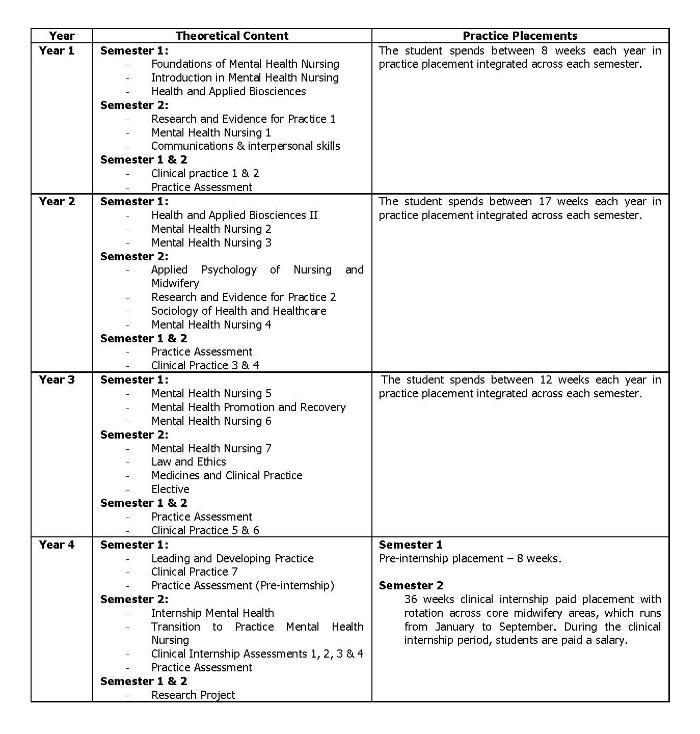
Practice Placement
Graduates of the Mental Health Nursing degree programme will undertake clinical placements regularly throughout the programme, and will work in a variety of settings, including:
- In-patient mental health services
- Community mental health services
- Child and adolescent mental health services
- Voluntary organisations
- Recovery and rehabilitation services
- Services for the older person
- Substance misuse and addiction treatment services
- Primary mental health care
- Community mental health services for people experiencing homelessness
- Perinatal mental health services
- Self-selected placements
These placements enhance the link from theory to practice and provides you with a wide variety of opportunities and experiences in all fields of mental health nursing. Practice placement is an essential component of the programme, ensuring that you have sufficient opportunities to develop skill and competence in care provision and decision making, meeting the requirements for professional registration with the Nursing and Midwifery Board of Ireland (NMBI 2023). Placements in Mental Health Nursing can be anywhere in Galway Roscommon Mental Health Nursing Services. Students are required to travel to external placements and may apply to the Galway Roscommon Mental Health Nursing Services for support in meeting travel and accommodation costs.
E-Learning technologies
Information associated with lectures and assignments is often communicated via a Virtual Learning Environment (VLE) called Canvas. A range of e-learning experiences is also embedded in the programme through, for example: interactive group workshops in a flexible learning space, podcasts and interactive web-based learning activities.
Lectures
Introduce information about new topics as a starting point for further self-directed private study/reading. Lectures also provide opportunities to ask questions, gain feedback and advice on assessments (normally delivered in large groups to all year group peers)
Practical and Simulation Based Education
We provide opportunities to develop technical skills and apply theoretical principles to real-life or practical contexts in our clicnial skills labs and simulation suite. All mental health students have opportunities to engage in interprofessional education (IPE) activities.
Self-directed study
This is an essential part of life as a University of Galway student when important private reading, engagement with e-learning resources, reflection on feedback to date and research work for assignments is carried out.
Seminars/tutorials/workshops
Significant amounts of teaching are carried out in small groups (typically 10-20 students). These provide an opportunity for students to engage with academic staff who have specialist knowledge of the topic, to ask questions of them and to assess progress and understanding with the support of peers. Students are also expected to make presentations and other contributions to peer groups.
Attendance
Students are expected to attend 100% of classes within the modules.
Assessment
Assessments will be carried out in a variety of formats, including written assignments, exams, poster and oral presentations, dissertations, project work, case studies and clinical skills assessment.
- The way in which students are assessed will vary according to the learning outcomes of each module. Details of how each module is assessed is provided to all students at the start of each module.
In accordance with Nursing and Midwifery Board of Ireland regulations, the total requirements of the programme are 144 weeks of clinical placement. Students undertake a 36-week clinical internship in semester two of year four. During the clinical internship period, students are paid a salary.
Learning and Teaching
At the School of Nursing and Midwifery, we aim to deliver a high-quality learning environment that embeds intellectual curiosity, innovation and best practice in learning, teaching and student support to enable students to achieve their full academic potential. We provide a range of learning experiences which assist our students to engage with subject experts, develop attributes and perspectives that will equip them for life and work in a global society. We make use of innovative technologies and we have a world class library that enhances their development as independent, lifelong learners. Examples of the opportunities provided for learning on this programme are:
Lectures
Introduce information about new topics as a starting point for further self-directed private study/reading. Lectures also provide opportunities to ask questions, gain feedback and advice on assessments (normally delivered in large groups to all year group peers)
Practical and Simulation Based Education
We provide opportunities to develop technical skills and apply theoretical principles to real-life or practical contexts in our clicnial skills labs and simulation suite. All mental health students have opportunities to engage in interprofessional education (IPE) activities.
Self-directed study
This is an essential part of life as a University of Galway student when important private reading, engagement with e-learning resources, reflection on feedback to date and research work for assignments is carried out.
Seminars/tutorials/workshops
Significant amounts of teaching are carried out in small groups (typically 10-20 students). These provide an opportunity for students to engage with academic staff who have specialist knowledge of the topic, to ask questions of them and to assess progress and understanding with the support of peers. Students are also expected to make presentations and other contributions to peer groups.
Attendance
Students are expected to attend 100% of classes within the modules.
Assessment
Assessments will be carried out in a variety of formats, including written assignments, exams, poster and oral presentations, dissertations, project work, case studies and clinical skills assessment.
- The way in which students are assessed will vary according to the learning outcomes of each module. Details of how each module is assessed is provided to all students at the start of each module.
Further Education
After successfully completing this course, you will be eligible to register with the NMBI in the psychiatric division. This registration will also allow opportunities to work abroad as a mental health nurse.
There are a variety of continuing professional development opportunities available to graduates of this programme, in particular postgraduate programmes within the School of Nursing and Midwifery. Mental health graduates can pursue further study at master’s and PhD level: MSc Advanced Practice mental health.
Why Choose This Course?
Career Opportunities
There is a study abroad opportunity within Europe and beyond that is available for students through the Erasmus Programme and other international partnerships with universities and/or care facilities in different countries such as Kenya.
Following qualification, you will have the experience needed to work as a mental health nurse within the HSE, and it is possible to specialise in a number of mental health services including Child and Adolescent mental health nursing, Cognitive Therapy, Behavioural Therapy, Eating Disorders, Mental Health Nursing of Older Persons and Substance Misuse/Addiction Counselling services. Also, you can work in private healthcare or within the voluntary and independent sector. You may also choose to pursue a career in teaching, research or management.
Who’s Suited to This Course
Learning Outcomes
Transferable Skills Employers Value
Work Placement
Students undertake a 36-week clinical internship in semester two of year four. Clinical practice modules require students to complete clinical placements within the Health Service Executive West region. While on clinical placements, students will be supervised by an appropriately trained nurse. In accordance with Nursing and Midwifery Board of Ireland regulations, the total requirements of the programme are 144 weeks clinical placement. During the clinical internship period, students are paid a salary.
Study Abroad
Related Student Organisations
Course Fees
Fees: EU
Fees: Tuition
Fees: Student Contribution
Fees: Student levy
Fees: Non EU
*EU Fees are comprised of Tuition + Student Contribution Charge + Student Levy
Student Levy: €140 - payable by all students and is not covered by SUSI. Further detail here https://su.nuigalway.ie/
Find out More
School of Nursing and Midwifery
Programme Director : Dr Siobhán Smyth
T: 091-492832
E: siobhan.smyth@universityofgalway.ie
Web: https://www.universityofgalway.ie/medicine-nursing-and-health-sciences/nursing-midwifery/
What Our Students Say
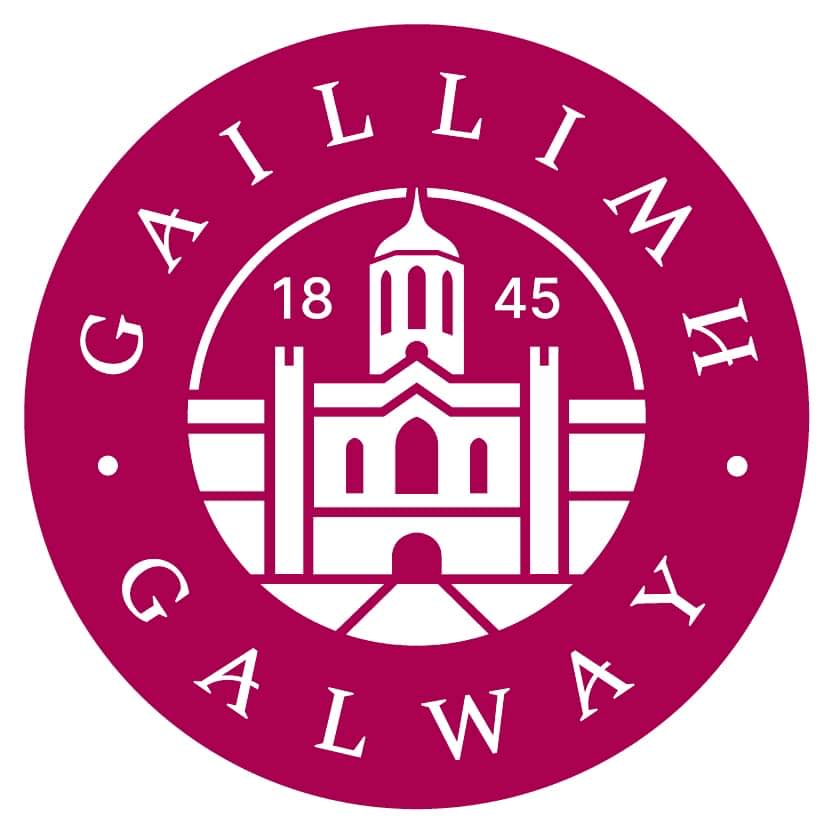
Laura Greene | Mental Health Nursing (Final year, 4th year)
I enjoyed the practical side of learning. Throughout the four year degree, I worked in a vast amount of clinical areas. I gained a lot of exposure to various mental illnesses and I was able to gain a true understanding of how to care for someone with a mental illness. I enjoyed the workshops and the different speakers that came to University of Galway to speak to us about their clinical area. I enjoyed the variety of areas you can learn about in mental health from care of the elderly to working with children with mental health difficulties. Each area is so different and specialized and it gives students a great opportunity to branch out.
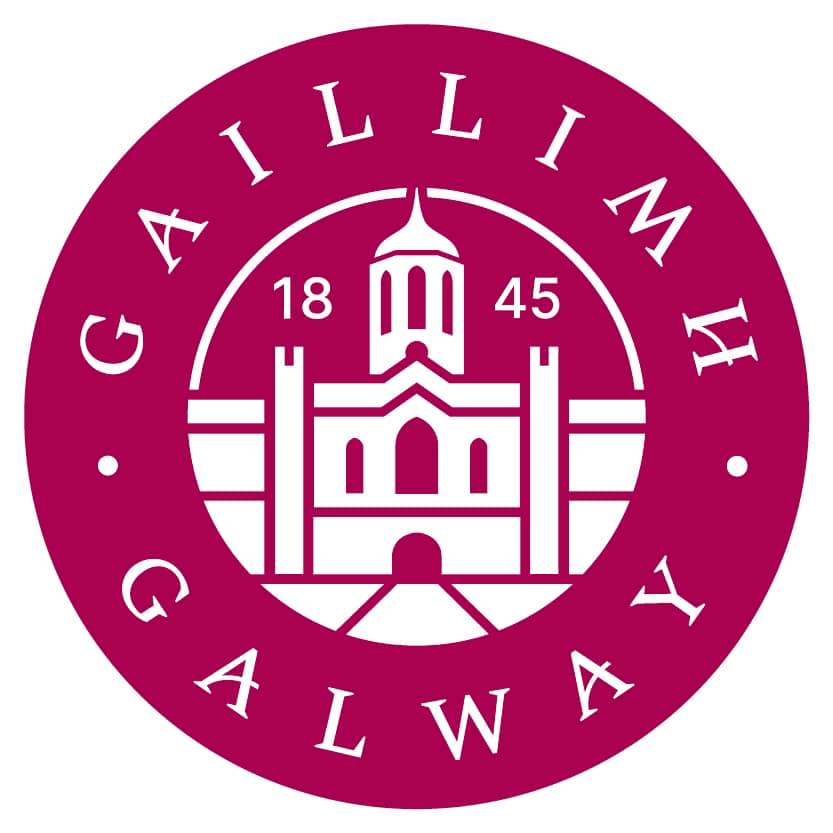
Ava Fowley | Mental Health Nursing
The Bachelor of Nursing (Mental Health) degree at University of Galway has offered a unique and important foundation for my nursing career. The University has provided me with the opportunity to discover my academic potential as well as enhancing my skills in becoming a qualified mental health nurse. I have met many inspiring people over the four years, both in class; on a student-to-student level and out on placement; on a student nurse-to-service user level. There is a great hub of support from the lecturers and staff in college to the clinical placement coordinators and staff members you meet out in the varied and interesting placement settings.
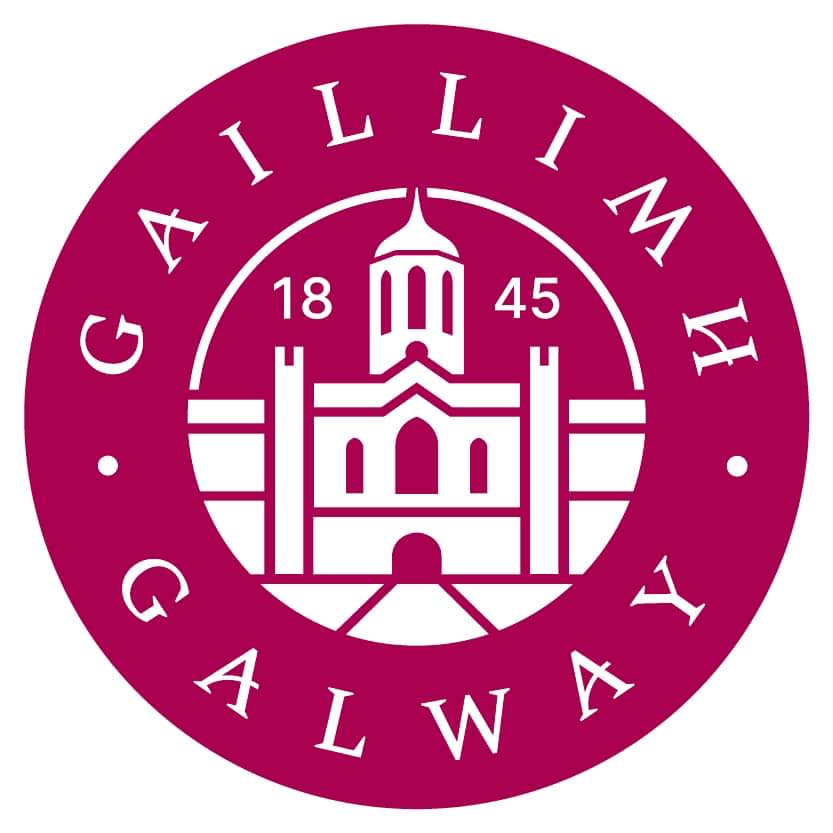
Martyna Zdzieblowska | Mental Health Nursing
Choosing a university was an important milestone, and I am glad I chose University of Galway for my university journey. The Mental Health Nursing programme offers a diverse range of clinical placements which provide a vast insight into what you can do with your nursing degree. Moreover, the state of the art building enables students to learn and practice their nursing skills in a clinical environment which is further supplemented by a great selection of books in the university library and the new computer suite. University of Galway has a great location right in the centre of the Galway, which offers great opportunity to have fun and explore the local area. The campus also offers several clubs and societies that allow you to meet with like-minded people and share interests which is an important part of the university experience.











